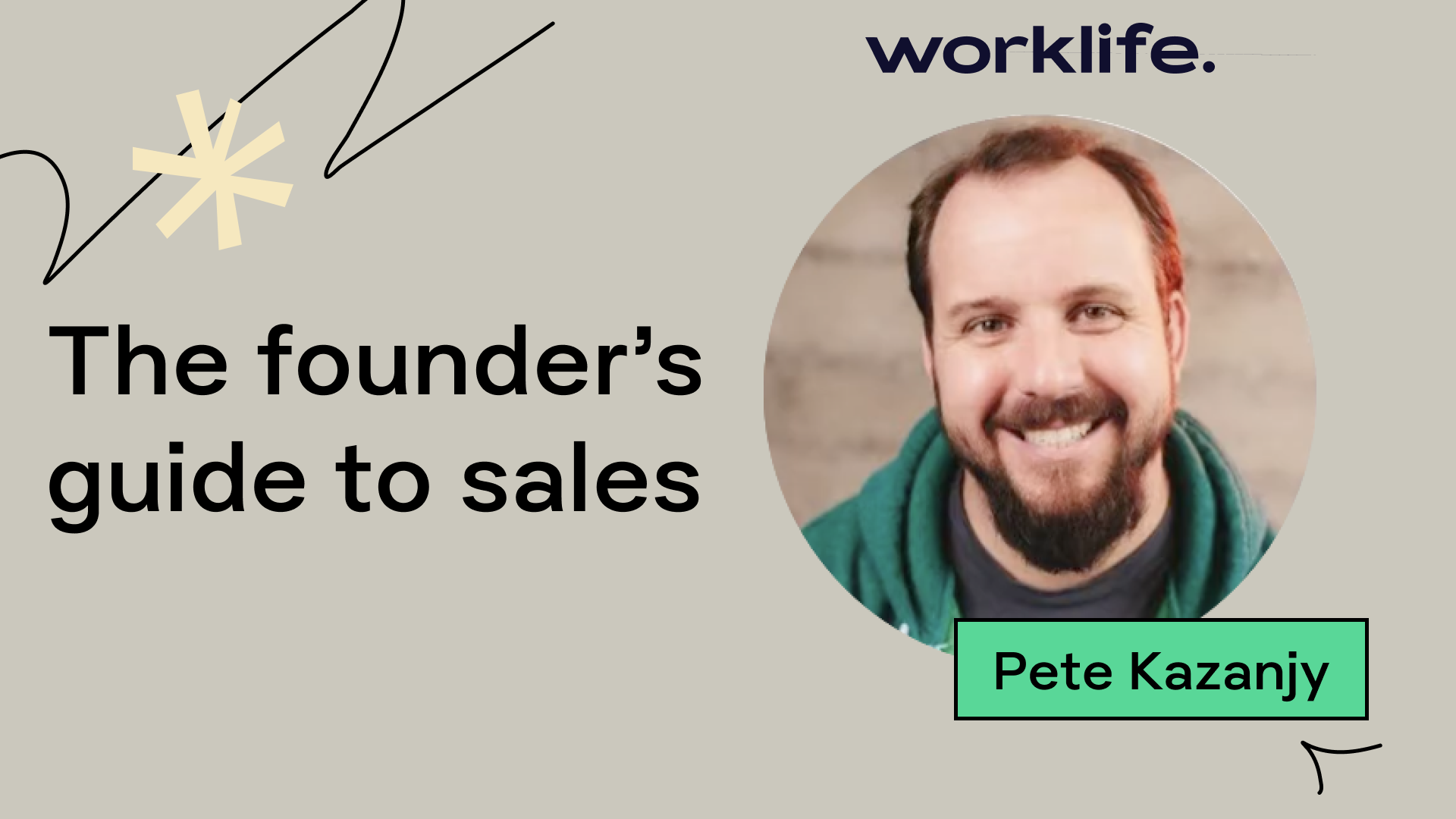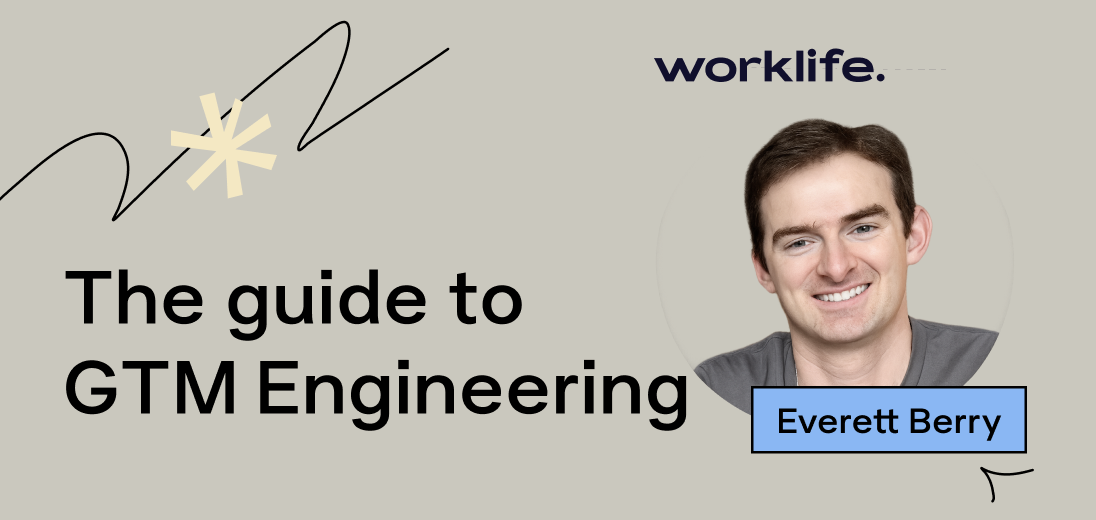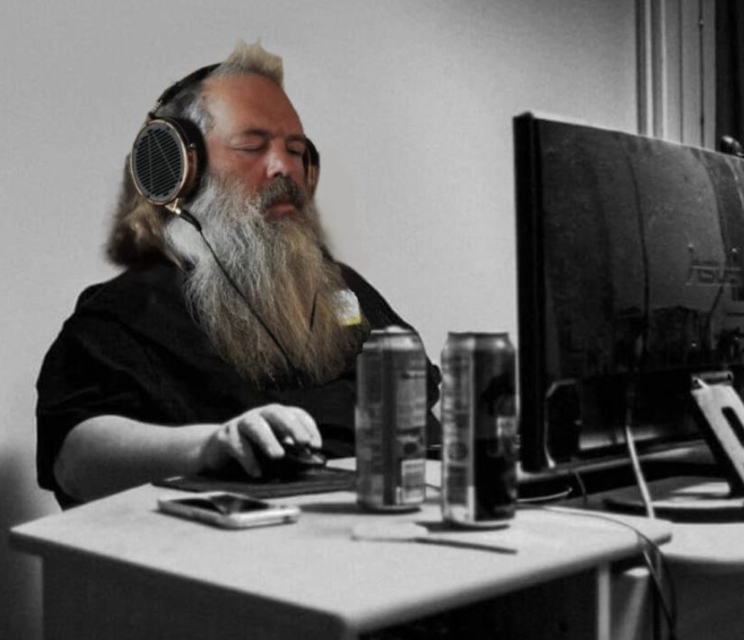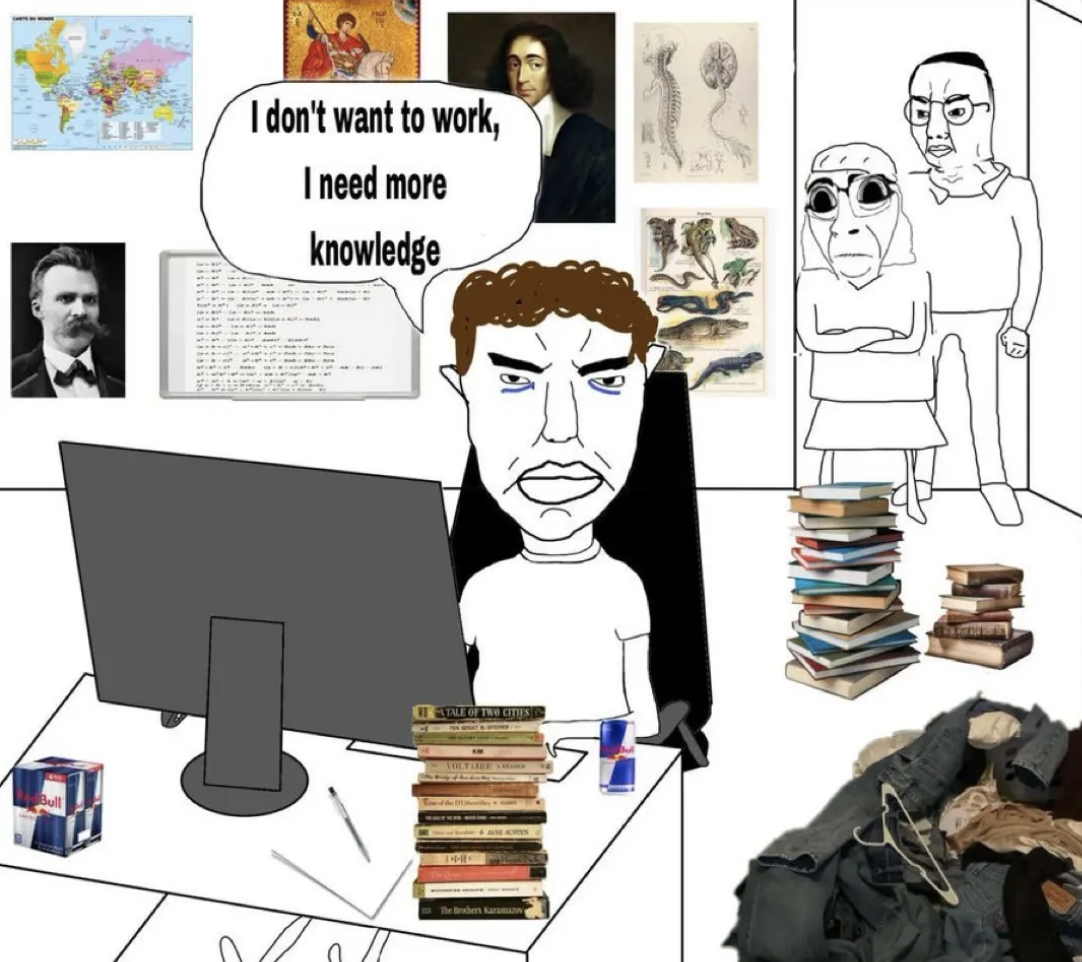Worklife debuted our first annual meeting: Now, New, Next in October 2020. In this video series, we sat down with changemakers across all fields to share ideas for navigating a changing world. If you couldn’t make it, you can still catch these valuable discussions right on the Worklife site. Today we’re sharing a discussion about Career Evolutions.
In the age of the hybrid workplace, the Great Resignation, flexible working hours, we’ve seen millions of Americans leave their jobs for something new. Some are founding companies, others are pivoting to freelance, and still others are switching careers.
If you have yet to resign, but need a career change and are unsure what to do, stick around. We’ve rounded up advice from:
- Rhonesha Byng, Founder & CEO at Her Agenda
- Adrien Dewulf, Co-Founder at Heroes
- Claire Wasserman, Founder & Chief Brand Officer at Ladies Get Paid
- Matt Schulman, Founder & CEO of Pave (formerly Trove)
Byng, Dewulf, Wasserman, and Schulman know how to get people hired and to get people paid. In a time of industry-wide disruption, they leverage digital tools to maximize opportunity and scale an individual’s efforts for huge career change.
First up: taking risks.
Switching Careers Means Taking Risks
Byng: How do you best prepare yourself for sudden career changes and how has COVID shifted how we need to think about preparing for career crisis?
Wasserman: You cannot do what you want in your life and be independent if you don't have savings. The people who are the strong negotiators are the ones who are able and willing to walk away from something. So we've gotta get our savings together.
Dewulf: I would say out of personal experience, you're never going to be ready for a career change.
There's no world where you're like the perfect person to go for a new career. Great change is always going to be super challenging.
Launching your own thing? Get started with Pietra.
Schulman: Whether you should stay in your comfort zone or go for a lead depends a lot on the context. Partially you have to just understand the matrix of combining what you're good at and what you're passionate about with what makes sense in the world right now.
I think that optimism and intellectual honesty is key to navigating a change in any career.
You have to be relentlessly optimistic because things always go wrong. There's two ways to look at it:
- Become deflated
- Laugh and view the friction as a source of strength and optimism for the future
Be intellectually honest about what's going on at any given point. I think a lot of people fall into this initial trap where they are going through the process of something and they're afraid to get off that path or go to something new.
Look at the mirror at the end of the day and ask:
- Is this what I want to be doing?
- Am I making the right decisions?
- If I'm working hard on this, is the signal that I'm seeing from the market or my colleagues pushing me in the direction that I want to be going?
Wasserman: I agree. Reevaluating values and looking in the mirror is one thing everyone should be doing quarterly.
When we're in a place of transformation or transition like a pandemic, that is the time to reflect.
Oftentimes we equate work with hard work, but we’re not realizing that whatever is second nature to us is also a skillset that can be used. This is a great time to take those strengths seriously. I would recommend figuring out what really lights you up.
- What are the things that you get into flow about?
- What are the things that come naturally to you?
- Where have you felt like there's momentum in your life?
- Is that a path forward for you?
- Based on the market, can you make money from this skill?
Byng: Here’s a personal example from me: my career started as a journalist. I was always called nosy as a kid. And that's curiosity, which is a skill you need in order to ask the right questions and be a great journalist and a great reporter.
I took a journalism class by accident in high school, and I was like, “wait a second, this is a career.” So definitely evaluate what you love, what your skillsets are, and what your personality traits are as you start a new career path.
I Need A Career Change But Don’t Know What To Do: Network!
After taking stock of your strengths, take stock of your contacts. Whether you're switching careers at 30 or at 50, the Worklife panel emphasized the importance of leveraging your network.
Wasserman: I imagine a network like a safety net. Make sure that you have people in your life that you can go to with a question or need. Make sure that you've developed relationships with “portal people''. These are folks who are incredibly well-networked themselves:
- Community leaders
- Heads of organizations
- people who know everybody
When you don’t know who to reach out to, chances are that a portal person can connect you to somebody they know. However, don't wait until you need something to go and get it. Networking is a good practice to be developing all along.
It can be overwhelming to pull from your network. So make sure that you have a place where everything is, to quickly see who will be helpful to you. I exported all of my LinkedIn contacts and I put them into Airtable. I fill out information like:
- What a person does
- What access they have
- Whether we’ve communicated before
Dewulf: I agree with Claire totally. Networks are super powerful. I always make the joke that I never found a job by applying to it. It's great to have a resumé for when you're in an interview, but the network is the most powerful thing.
Acknowledge that your network is everywhere. Literally the most interesting people I've met were in an Uber pool in Paris, or on a train somewhere on a holiday vacation. So have that awareness that the person next to you or in front of you could always bring you something. They might be a future client, employer, or co-founder.
Switching Careers at 50? 35? 25?: Update Your Networking Process
Although pandemic-era mandates are loosening, the days of mega networking events still seem far off. In the meantime, there are plenty of digital routes to making new connections; at the beginning of the pandemic, I even built a virtual Silicon Valley in Figma where many serendipitous meetings took place.
Byng: How do you genuinely and authentically grow your network in this digital playing field?
Wasserman: Cold outreach is totally fine. At Ladies Get Paid, we have met the most incredible women who have become speakers or angel investors through cold outreach on LinkedIn.
When you send a note, make it personal. Do your research and let them know how you know them. Demonstrate that you respect their time, but also maintain polite persistence. If you did not hear back, reach out once or twice more. I think this is the right time for nagging. There's a universal shitstorm that's happening to everybody, right? People are more generous.
There are people in my life who did not respond to me after the third time I reached out, but then came back later wanting to collaborate. So your goal here is just to get on people's radar.
Dewulf: I saw a really cool TikTok video with a networking rule that I've been applying ever since: every day you reach out to one person. It doesn't have to be for something specific:
- Read an article you liked? Reach out to the reporter.
- Saw a Ted Talk talk you enjoyed? Reach out to the speaker.
- Saw an ad you loved? Reach out to the company to see who does their marketing.
I love reaching out on Instagram. People are super attentive to those accounts. I'm often surprised by how prompt people are. LinkedIn is great on a more professional level.
Many connections I made became video calls. We’ve actually made two job offers from these connections at Heroes.
I think video is a very powerful tool. At Heroes, the way we filter through applications for companies is by giving them video ads. When you see a video, you can see in a second if you like a candidate. I think the future of professional networking sites will be a platform where it's video on both the employer side and the user side.
Byng: There's so much power in digital communities. There are so many Slack communities dedicated to opportunities and sharing jobs from the hidden job market. Her Agenda actually has one called “Her Agenda Insiders” where we share positions that companies are hiring for but haven't posted about yet. Someone will share within the trusted community. They’ll send the application and say “I can refer you.” It has been super, super powerful.
Looking for new digital communities? Polywork is a powerful tool for showcasing all of your work in one place.
Switching Careers: Negotiating Offers
Byng: What advice would you give to someone negotiating right now? What if an offer is not what they wanted, but they don't have anything else and rent is due next week?
Wasserman: This goes back to what I said originally. You can't do anything if you don't have money. Listen, if on your resume 2020, there's a random job, no one is going to look at it and go, “Oh, why did you take this job?” This is the get out of jail free year. We can all do whatever we need to do to survive.
That being said, my advice would be very different before 2020. Back then, I would have said, if the opportunity is not right and you have the money to be able to do so, say no. Otherwise it's hard to get back on track.
However, there really is no such thing as having it all or having a dream job. It's just how many aspects of this opportunity you can leverage for the future. Make sure everything is aligned with your values and your goals in your career. See if there's an aspect of the job that you think you could leverage for the future, whether the title of the company is fancy or you’ll be learning a new skill.
That being said, if it is a random job because you need to pay the bills. No shame, no shame at all. And you should always negotiate.
Schulman: It all starts foundationally with transparency and understanding what's on the table. I think with a lot of job offers, people don't understand what's in the cards in terms of equity and the cap table. Part of it is just because it's really confusing. It can be tough to get an understanding of what a stock option means at company A versus company B.
People are often intimidated or unsure of which questions to ask. Maybe you are taking a pay decrease to go to an earlier stage venture and won't really know until you understand the equity. Maybe you’re in sales so you need to understand the details of commission.
Navigating a salary paid in equity? Protect your wealth with Candor.
More broadly, I would encourage candidates to understand the philosophy of the company you may be joining in terms of promotions and in terms of a merit based culture. How does good behavior get rewarded?
Dewulf: Yeah, I think transparency is the biggest advantage when you're looking at job offers. It's always super frustrating for both parties when you realize that the job offer is disappointing at the end of the process.
In the first interviews I always ask about salary expectations so that there's no misunderstanding later on. This way no one wastes time doing all these interview rounds when it's never going to be a match.
Sometimes it is a bit uncomfortable for employees when you ask them what their salary expectations are.
But I think it's worth asking them in the beginning to avoid that uncomfortable situation or disappointing result at the end of the interview.
Switching Careers: Managing Rejection
Byng: How do you manage rejection and maintain your confidence in a time like this?
Schulman: I think the key is to learn from every single rejection. Write down a sentence why you may have gotten rejected and how you can learn from this experience. View that as a source of strength. It can be demoralizing to get rejected a lot, but you can combine all these little learnings and craft them into a way to holistically improve your appeal in the market or have a different focus on which types of opportunities you're looking for. The key is to learn and iteratively get better.
Wasserman: Separate your identity and self-worth from what you do for a living. You can only control what you can control. This is extremely hard, especially if you love what you do or own your own business.
I do a lot of meditations where I explicitly say “my identity, my sense of self, my self worth cannot be touched by the chaos around me.”
Dewulf: It's easy to say and not as easy to apply, but stay positive and surround yourself with a really great network. At the end of the day, whatever job you do, wherever you move, you have to have a happy life, right?
When you take everything career-related out, ask yourself what really makes you happy. For me, it's the connections. The people. You could have the best job ever, but if you don't have that connection, That's social interaction with your people around you, you're never going to feel fulfilled or happy.
Regardless of all the jobs and the interviews, being happy with yourself I think is the most important thing first. ∎
If you’re thinking about switching careers or moving companies, you can find new opportunities on our job board.
Thinking about starting your own thing? Check out these articles:






